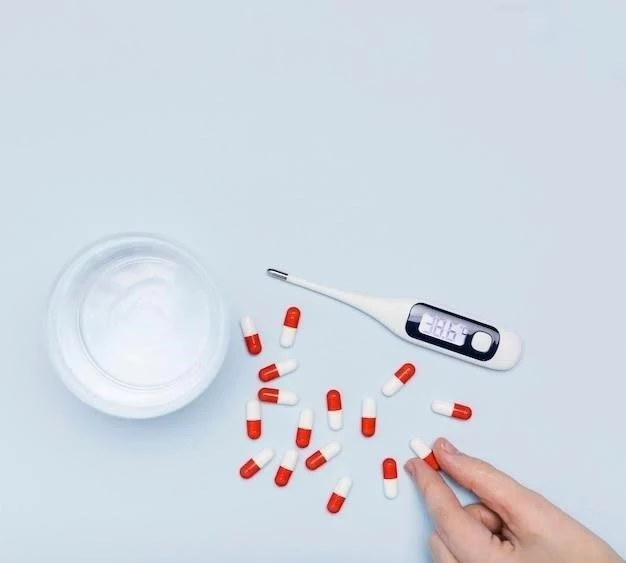Prednisone High

What is Considered a High Dose of Prednisone?
The starting dose of prednisone may be between 5 mg to 60 mg per day․ A dose above 40 mg per day may be considered a high dose․
However, everybody responds differently to prednisone, so what might be a high dose depends on the person and the condition․
Understanding Prednisone Dosages
Prednisone is a corticosteroid medication that is used to treat a variety of conditions, including asthma, arthritis, and lupus․ It is available in both oral and intravenous forms․ The dosage of prednisone that is right for you will depend on the condition being treated, the severity of the condition, and your individual response to the medication․
The starting dose of prednisone is typically 5-60 mg per day․ The dose may be increased or decreased depending on your response to the medication․ The maximum recommended dose of prednisone is 80 mg per day․
It is important to take prednisone exactly as prescribed by your doctor․ Do not take more or less of the medication than prescribed, and do not stop taking the medication without talking to your doctor first․
If you have any questions about prednisone dosages, talk to your doctor or pharmacist․
Side Effects of High-Dose Prednisone
High-dose prednisone can cause a number of side effects, including⁚
- Increased blood sugar levels
- Weight gain
- Fluid retention
- High blood pressure
- Osteoporosis
- Muscle weakness
- Skin thinning
- Easy bruising
- Increased risk of infections
- Mood swings
- Memory problems
- Behavior changes
These side effects are more likely to occur with high doses of prednisone and with long-term use․ It is important to talk to your doctor about the risks and benefits of prednisone before starting treatment․
If you experience any side effects from prednisone, talk to your doctor․ They may be able to lower your dose or switch you to a different medication․
Cardiovascular Effects
High-dose prednisone can cause a number of cardiovascular side effects, including⁚
- Hypertension
- Dyslipidemia
These side effects are more likely to occur with high doses of prednisone and with long-term use․
Hypertension
High-dose prednisone can cause hypertension, or high blood pressure․ This is because prednisone can cause fluid retention, which can lead to increased blood volume and pressure․ Hypertension can increase your risk of heart attack, stroke, and kidney disease․
If you have high blood pressure, your doctor may recommend that you take medication to lower your blood pressure․ You may also need to make lifestyle changes, such as eating a healthy diet, exercising regularly, and reducing your stress levels․
It is important to monitor your blood pressure regularly if you are taking prednisone․ If you experience any symptoms of hypertension, such as headache, dizziness, or shortness of breath, talk to your doctor right away․
Dyslipidemia
High-dose prednisone can cause dyslipidemia, or abnormal levels of cholesterol and other fats in the blood; This is because prednisone can increase the production of low-density lipoprotein (LDL) cholesterol, the “bad” cholesterol, and decrease the production of high-density lipoprotein (HDL) cholesterol, the “good” cholesterol․
Dyslipidemia can increase your risk of heart disease and stroke․ If you have dyslipidemia, your doctor may recommend that you take medication to lower your cholesterol levels․ You may also need to make lifestyle changes, such as eating a healthy diet and exercising regularly․
It is important to have your cholesterol levels checked regularly if you are taking prednisone․ If you experience any symptoms of dyslipidemia, such as chest pain, shortness of breath, or leg pain, talk to your doctor right away․
Metabolic Effects
High-dose prednisone can cause a number of metabolic side effects, including⁚
- Weight gain
- Hyperglycemia
These side effects are more likely to occur with high doses of prednisone and with long-term use․
Weight Gain
High-dose prednisone can cause weight gain due to several mechanisms․ First, prednisone can increase appetite and cravings for food․ Second, prednisone can cause fluid retention, which can lead to weight gain․ Third, prednisone can cause redistribution of body fat, leading to increased fat storage in the abdomen and face․
Weight gain can be a frustrating side effect of prednisone treatment․ However, there are a few things you can do to manage your weight while taking prednisone⁚
- Eat a healthy diet that is low in calories and fat․
- Exercise regularly․
- Avoid sugary drinks and processed foods․
- Talk to your doctor about medications that may help you lose weight․
If you are concerned about weight gain, talk to your doctor․ They can help you develop a plan to manage your weight while taking prednisone․
Hyperglycemia
High-dose prednisone can cause hyperglycemia, or high blood sugar․ This is because prednisone can interfere with the body’s ability to produce and use insulin, a hormone that helps control blood sugar levels․
Hyperglycemia can lead to a number of serious health problems, including⁚
- Increased thirst
- Frequent urination
- Blurred vision
- Fatigue
- Weight loss
- Nausea and vomiting
- Ketoacidosis, a serious condition that can lead to coma or death
If you have diabetes, it is important to monitor your blood sugar levels closely while taking prednisone․ You may need to adjust your insulin dosage or take additional medication to control your blood sugar levels․
If you experience any symptoms of hyperglycemia, talk to your doctor right away․
Musculoskeletal Effects
High-dose prednisone can cause a number of musculoskeletal side effects, including⁚
- Osteoporosis
- Muscle weakness
These side effects are more likely to occur with high doses of prednisone and with long-term use․
Osteoporosis
High-dose prednisone can cause osteoporosis, a condition in which the bones become weak and brittle․ This is because prednisone can interfere with the body’s ability to absorb calcium, a mineral that is essential for bone health․
Osteoporosis can lead to a number of serious health problems, including⁚
- Bone pain
- Fractures
- Kyphosis, a curvature of the spine
- Loss of height
If you are taking high-dose prednisone, it is important to talk to your doctor about ways to prevent osteoporosis․ Your doctor may recommend that you take calcium and vitamin D supplements, or that you take medication to slow bone loss․
If you have osteoporosis, it is important to take steps to prevent fractures․ These steps include⁚
- Avoiding falls
- Exercising regularly
- Eating a healthy diet
- Taking medication to strengthen your bones
If you have any concerns about osteoporosis, talk to your doctor․
Muscle Weakness
High-dose prednisone can cause muscle weakness․ This is because prednisone can interfere with the body’s ability to produce and use proteins, which are essential for muscle strength․
Muscle weakness can make it difficult to perform everyday activities, such as walking, climbing stairs, and lifting objects․ It can also lead to falls and injuries․
If you are taking high-dose prednisone, it is important to talk to your doctor about ways to prevent muscle weakness․ Your doctor may recommend that you take calcium and vitamin D supplements, or that you take medication to strengthen your muscles;
If you have muscle weakness, it is important to take steps to prevent falls․ These steps include⁚
- Using a cane or walker
- Wearing non-slip shoes
- Avoiding falls hazards, such as loose rugs and uneven surfaces
If you have any concerns about muscle weakness, talk to your doctor․
Other Side Effects
High-dose prednisone can cause a number of other side effects, including⁚
- Skin thinning
- Easy bruising
- Increased risk of infections
These side effects are more likely to occur with high doses of prednisone and with long-term use․
Skin Thinning
High-dose prednisone can cause skin thinning․ This is because prednisone can interfere with the body’s production of collagen, a protein that gives skin its strength and elasticity․
Skin thinning can make the skin more fragile and prone to tearing and bruising․ It can also make the skin more susceptible to infection․
If you are taking high-dose prednisone, it is important to take steps to protect your skin․ These steps include⁚
- Wearing sunscreen
- Avoiding sun exposure
- Moisturizing your skin regularly
- Avoiding harsh soaps and detergents
If you have any concerns about skin thinning, talk to your doctor․
Easy Bruising
High-dose prednisone can cause easy bruising․ This is because prednisone can interfere with the body’s ability to produce platelets, which are cells that help to clot blood․
Easy bruising can be a nuisance, but it can also be a sign of a more serious underlying condition․ If you are experiencing easy bruising, it is important to talk to your doctor to rule out any other potential causes․
If you are taking high-dose prednisone, there are a few things you can do to reduce your risk of easy bruising⁚
- Avoid activities that could lead to injury
- Wear protective clothing, such as gloves and long pants
- Take steps to prevent falls
- Talk to your doctor about medications that may increase your risk of bleeding
If you have any concerns about easy bruising, talk to your doctor․
Increased Risk of Infections
High-dose prednisone can increase your risk of infections․ This is because prednisone can suppress the immune system, which makes it harder for your body to fight off infections․
You are at an increased risk of infections if you are taking high-dose prednisone for a long period of time․ You are also at an increased risk if you have other conditions that weaken your immune system, such as diabetes or HIV․
There are a number of things you can do to reduce your risk of infections while taking high-dose prednisone⁚
- Wash your hands frequently
- Avoid contact with people who are sick
- Get vaccinated against common infections, such as the flu and pneumonia
- Take antibiotics as prescribed by your doctor
If you have any symptoms of an infection, such as fever, chills, or cough, talk to your doctor right away․
Psychological Effects
High-dose prednisone can cause a number of psychological side effects, including⁚
- Mood swings
- Memory problems
- Behavior changes
These side effects are more likely to occur with high doses of prednisone and with long-term use․
Mood Swings
High-dose prednisone can cause mood swings․ This is because prednisone can affect the balance of hormones in the body, which can lead to changes in mood․
Mood swings can range from mild to severe․ Some people may experience irritability, anxiety, or depression․ Others may experience euphoria or mania․
Mood swings can be a nuisance, but they can also be a sign of a more serious underlying condition․ If you are experiencing severe mood swings, it is important to talk to your doctor to rule out any other potential causes․
If you are taking high-dose prednisone, there are a few things you can do to help manage your mood swings⁚
- Get regular exercise
- Eat a healthy diet
- Get enough sleep
- Avoid alcohol and caffeine
- Talk to your doctor about medication that may help to stabilize your mood
If you have any concerns about mood swings, talk to your doctor․
Memory Problems
High-dose prednisone can cause memory problems․ This is because prednisone can affect the function of the hippocampus, a region of the brain that is involved in memory formation․
Memory problems can range from mild to severe․ Some people may experience difficulty remembering recent events or conversations․ Others may experience more severe memory loss, such as forgetting the names of close friends or family members․
Memory problems can be a nuisance, but they can also be a sign of a more serious underlying condition․ If you are experiencing severe memory problems, it is important to talk to your doctor to rule out any other potential causes․
If you are taking high-dose prednisone, there are a few things you can do to help improve your memory⁚
- Get regular exercise
- Eat a healthy diet
- Get enough sleep
- Avoid alcohol and caffeine
- Play brain games, such as puzzles and crosswords
- Talk to your doctor about medication that may help to improve your memory
If you have any concerns about memory problems, talk to your doctor․
Behavior Changes
High-dose prednisone can cause behavior changes․ This is because prednisone can affect the balance of hormones in the body, which can lead to changes in mood and behavior․
Behavior changes can range from mild to severe․ Some people may experience irritability, anxiety, or aggression․ Others may experience more severe behavior changes, such as psychosis or mania․
Behavior changes can be a nuisance, but they can also be a sign of a more serious underlying condition․ If you are experiencing severe behavior changes, it is important to talk to your doctor to rule out any other potential causes․
If you are taking high-dose prednisone, there are a few things you can do to help manage your behavior changes⁚
- Get regular exercise
- Eat a healthy diet
- Get enough sleep
- Avoid alcohol and caffeine
- Talk to your doctor about medication that may help to stabilize your mood and behavior
If you have any concerns about behavior changes, talk to your doctor․

Monitoring High-Dose Prednisone Therapy
If you are taking high-dose prednisone, it is important to monitor your condition closely for side effects․ Your doctor may recommend that you have regular blood tests, urine tests, and physical exams to check for any problems․
Some of the side effects that your doctor will be monitoring for include⁚
- High blood pressure
- High blood sugar
- High cholesterol
- Osteoporosis
- Muscle weakness
- Skin thinning
- Easy bruising
- Increased risk of infections
- Mood swings
- Memory problems
- Behavior changes
If you experience any of these side effects, talk to your doctor right away․ Your doctor may need to adjust your dose or switch you to a different medication․

Tapering Off Prednisone
When you are finished taking high-dose prednisone, it is important to taper off the medication gradually․ This will help to reduce your risk of side effects, such as adrenal insufficiency․
Your doctor will tell you how to taper off prednisone․ In general, you will start by reducing your dose by 5-10 mg every one to two weeks․ Your doctor will monitor you closely for side effects during this time․
If you experience any side effects while tapering off prednisone, talk to your doctor right away․ Your doctor may need to adjust your tapering schedule or switch you to a different medication․
Here are some tips for tapering off prednisone⁚
- Follow your doctor’s instructions carefully․
- Reduce your dose gradually․
- Monitor yourself for side effects․
- Talk to your doctor if you experience any side effects․
By following these tips, you can help to reduce your risk of side effects when tapering off prednisone․
When to Seek Medical Attention
If you are taking high-dose prednisone, it is important to seek medical attention right away if you experience any of the following side effects⁚
- Chest pain
- Shortness of breath
- Sudden weight gain
- Swelling in your face, hands, or feet
- Severe headache
- Confusion
- Hallucinations
- Seizures
- Black stools
- Vomiting blood
These side effects can be serious and may require immediate medical attention․
You should also seek medical attention if you experience any other side effects that are bothersome or that do not go away․
High-dose prednisone can be an effective treatment for a variety of conditions․ However, it is important to be aware of the potential side effects of this medication․ If you are taking high-dose prednisone, it is important to monitor your condition closely for side effects and to talk to your doctor about any concerns you have․
By following your doctor’s instructions carefully and monitoring yourself for side effects, you can help to reduce your risk of problems while taking high-dose prednisone․